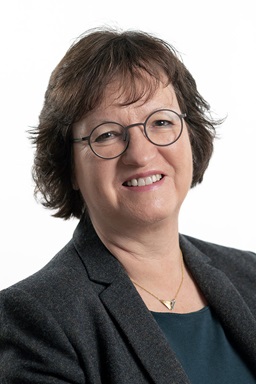April 11-14, inSkopje,Macedonia
The theme of the 85th session of the Serbia-Macedonia Provisional Conference was chosen from Psalm 34:14: “Turn from evil and do good; seek peace and pursue it.”
Wood can be used to build different things: high boardings to dissociate oneself from others, or a cross — as can be found at Skopje United Methodist Church — or a bridge to reunite two estranged brothers. This image, which had first been used by Pastor Marjan Dimov and which was taken up later by Bishop Patrick Streiff, was an invitation to think about how to journey together with other people.
And particularly against this background, it was remarkable how the participants of the annual conference session expressed their willingness to be one church — in spite of different countries and a difficult common history in the past and in the present. To live together in one church does not mean that everything is in harmony. But it was obvious how people knew and appreciated each other, how they listened to each other, and how they learned from each other. And how being one church ultimately — or rather above all else? — means to jointly confess the One, Jesus Christ.
In Macedonia, there is only one ordained elder in active service, the Rev. Marjan Dimov. In the closing worship service, Dimov was appointed as new superintendent of The United Methodist Church in Macedonia, succeeding the Rev. Wilfried Nausner. It is a lasting prayer request that new people are willing to be called and to take over responsibility — all the more given the reality that the migration of the younger generations to Western Europe increasingly affects the church as well.
But there are also courageous steps. The Miss Stone Center in Strumica, for instance, with its various diaconal services shall be organized as independent legal entity within the church in order to be able to continue being an instrument of love and hope for the poor.
For many years already, The United Methodist Church, as a member of the Interreligious Council in Macedonia, has been contributing toward building bridges in view of social challenges. And there are young people who are very active in the church — be it in ministries with children and youth, as musicians, or in administration. There is a change of generations in various aspects. This was also visible in the closing worship service on Sunday, where many children, youth and young adults were present.
In Serbia, there is a good number of committed young pastors who have taken over responsibility in many regards. This change of generations is reason for hope and thankfulness.
The statistical report revealed an interesting reality: 75% of the church members are women. There are regular gatherings where they can strengthen and encourage each other — and from which they return to their groups, to their local churches, and to their everyday life in order to live their faith and to put love into action.
There are many efforts to get in touch with new people. In Sid, for instance, a worship service was celebrated with refugees from Iran, and German language courses are offered. Thanks to financial support from Switzerland, a new printing machine could be purchased, which helps to publish Christian literature in a better quality. Since several United Methodist congregations in Serbia share the same language with The United Methodist Church in Slovakia, there is a longstanding and helpful cooperation.
It was a historic moment when the annual conference unanimously decided to organize the work in Albania as a third district of the conference. The churches in Serbia, Macedonia and Albania live in contexts that are, at least in part, marked by nationalism. Against this background, the decision was a conscious signal to take a different approach and to journey together. The next session of the annual conference will, for the first time, take place in Albania, and hopefully it will even be possible that the first Albanian pastor will be ordained as elder of The United Methodist Church.
It is reason to celebrate that after the last 10 years of church development, there are currently four vibrant United Methodist congregations in Pogradec, Tirana, Elbasan and Durrës. About 200 people consider themselves to be part of The United Methodist Church, and each year, another 10 to 20 people are baptized — an encouraging development in a country that had been predominantly Muslim until the Communist government put a ban on all religions.
In 2018, a second national church convention of The United Methodist Church in Albania took place. About 150 participants celebrated worship services, shared a meal and encouraged each other in faith. This reminded a bit of the beginnings of The United Methodist Church in other parts of the world.
It was amazing to see how the members and guests of the annual conference coming from three countries and speaking three languages tried to make wise decisions. Many things had already been discussed in district conferences. Yet, the men and women consciously and appreciatively listened to each other. Trying to understand, as part of the worldwide United Methodist Church, the decisions of General Conference 2019 also caused many questions. In Serbia and Macedonia, there will be study days in autumn 2019 in order to discuss the content and the implication of these decisions. These study days will also deal with the important question: How can we continue to journey together — now and in the future?
— Pastor Matthias Bünger, Thun, Switzerland
Like what you're reading? Support the ministry of UM News! Your support ensures the latest denominational news, dynamic stories and informative articles will continue to connect our global community. Make a tax-deductible donation at ResourceUMC.org/GiveUMCom.



